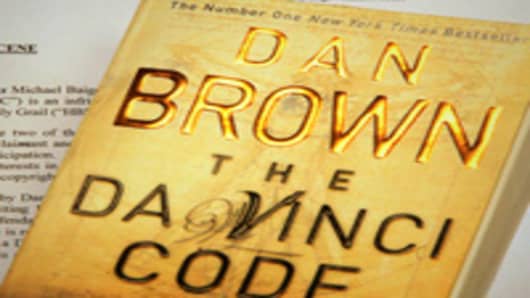There's no question that the publishing industry is struggling and Dan Brown's latest book is providing a much-needed jolt of energy. The author of "Da Vinci Code" still has the magic touch six years later; his latest book sold over a million hardcover copies in the US, UK, and Canada since its Tuesday release. Bertelsmann's Random House says this is its best first day of sales for an adult fiction-title ever.
This is of course good news for book sellers (Amazon, Barnes and Noble and Borders and it should also provide a boost for rival booksellers as this hot title brings buyers into book stores, real and virtual. (Here's my blog previewing the book's launch)
Meanwhile, the future of digital book rights is at stake as Google and the Department of Justice are in talks about its controversial settlement over digital book scanning. Google's $125 million settlement with the US Authors Guild and the Association of American Publishers would create a "Book Rights Registry," allowing authors and publishers to resolve copyright claims and take a cut of Google revenues from the books. Many in the book industry are concerned that this Google-controlled Registry will be able to set prices for all copyright-protected works. Another controversial point: the deal also allows Google to profit from "orphan titles," those books who are out of print and whose rights holders haven't come forward.
The fear is that Google is creating and controlling a competition-free market, and no competition means lower prices, which means less revenues for the content creators.
Now Google is heading towards a new way to distribute (and generate revenue) from the public domain books they've scanned. The Espresso Book Machine, from a company called On Demand Books, does just that, it prints books on demand. This machine, which can cost nearly $100,000, can print a 300 page book in four minutes. And I'm not talking about a regular-old HP or Xerox printer; this gadget binders the book and even prints a cover. Google is reportedly on the verge of announcing that it'll offer its public domain books through the system. Right now just few publishers have signed up to print through the machine -- it now offers 1.5 million titles through its deals.
This could really revolutionize the publishing industry. But the question is, for all those publishers that print 'Moby Dick' and other books in public domain and profit from the ongoing revenue, how threatening is this new competitor? The stakes will be raised as soon as Google signs on.
Questions? Comments? MediaMoney@cnbc.com



